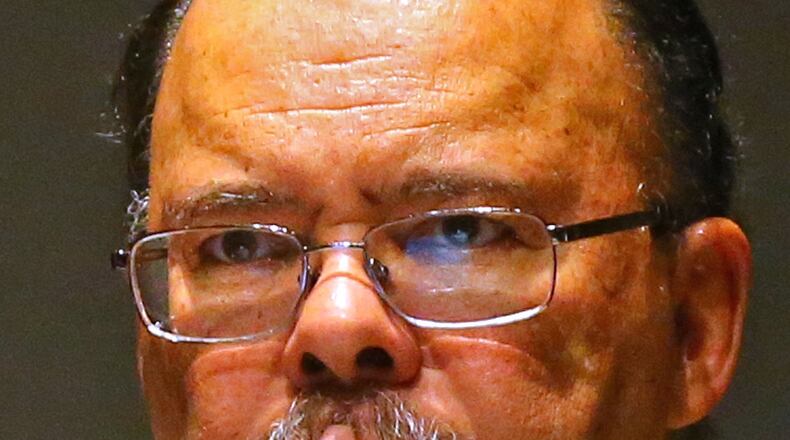The Georgia university system chancellor who oversaw the implementation of rules blocking immigrants without legal status from attending some of the state’s top schools and paying in-state tuition rates at others is now condemning those policies.
In an interview with The Atlanta Journal-Constitution, Erroll Davis argued the restrictive rules should be repealed. Davis, who is black, said he sees parallels between the enforcement of those policies today and the Jim Crow era when African-Americans were barred from certain public institutions, including the University of Georgia, which was desegregated in 1961.
“I see history repeating itself here in terms of just providing barriers to an educated citizenry on the one hand and on the other hand we talk about crime levels, when it is common knowledge that most criminals are not highly educated,” said Davis. “So you sort of shake your head. But that is the environment we live in in this state.”
Davis’ comments come as President-elect Donald Trump vows to crack down on illegal immigration once he arrives in the White House. Among Trump’s pledges: To build a wall along the U.S. border with Mexico and to halt an Obama administration program shielding from deportation young immigrants who were brought to the U.S. without authorization.
State Rep. Earl Ehrhart, chairman of the House subcommittee that oversees higher education funding, called Davis’ comparison “offensive.”
“To me, it’s not even close,” the Republican from Powder Springs said. “There is no moral equivalency between a minority student who is denied acceptance to the university system due to the vile Jim Crow laws and someone who is in the country illegally.”
“I don’t think we should accommodate those who are in this country illegally,” he said.
The university system’s admissions and in-state tuition policies have spurred three lawsuits now pending in federal and state courts.
Board of Regents Chairman Kessel Stelling Jr. and Chancellor Hank Huckaby declined to be interviewed about the policies, citing the pending legal action. But they released a prepared statement, saying the board “adopted the policies to comply with federal and state laws, and they mirror guidance from the office of the Attorney General.”
Still, there has been recent movement on the issue. Last weekend, the AJC reported that Georgia State and Augusta universities will in the spring consider admitting immigrants living in the U.S. without legal status. The Board of Regents said the change is the result of a review officials began in connection with the court battle.
The Board of Regents, Davis said, adopted its restrictive admissions policy in 2010 as part of a “political compromise.” That compromise, Davis said, was meant to dissuade the state Legislature from banning students without legal status from all of the state’s colleges and universities.
Still, lawmakers introduced a bill in 2012 to do just that, though Senate Bill 458 ultimately did not become law. Testifying that year about the bill, Huckaby, told state lawmakers, “Even for those who are here through no fault of their own, it makes sense to me that we should educate them to the highest level possible. It helps our state economically, culturally and educationally.”
The board policy adopted in 2010 bars students lacking legal status from attending any of its schools that did not admit all academically qualified applicants for the two most recent academic years. That prohibition now applies to UGA and Georgia Tech as well Georgia College & State University.
As chancellor, Davis said he tried to make the arguments early on that immigrants without legal status were “having absolutely no impact on our system.”
“It was a compromise that made no one happy,” Davis said. “But I felt at the time it was the absolute best I could do to keep access for undocumented students.”
Davis also said, “I have been and continue to be supportive of allowing all students access to higher education. I believe it is a travesty that a child can go through a k-12 system here and not be able to get into” all of the university system’s schools.
The board in 2010 also adopted a second policy requiring universities to verify “the lawful presence” of students applying for in-state tuition. The state Legislature had passed a law two years earlier, prohibiting students not “legally in this state” from paying the in-state rate.
The board, Davis said, decided not to buck that law because of the possibility that such a move could become a “lightning rod to bring more people into the issue.” The board’s in-state tuition rule has placed Georgia’s colleges out of reach for many immigrants who are living in the U.S. without legal status and who are struggling to make ends meet.
Davis, who went on to serve as superintendent of the Atlanta public school system and now works with a human resources consulting company in the city, agrees with critics who say it is counterproductive for Georgia to turn such students away from its top universities after spending considerable taxpayer money on their primary and secondary public education. Georgia spends $8,665 on average per public school student per year.
“It is a substantial taxpayer investment and then we turn around and say, ‘Jeez, we don’t want to leverage or capitalize on that investment further,’” he said. “It is just logically stupid.”
About the Author
Keep Reading
The Latest
Featured




